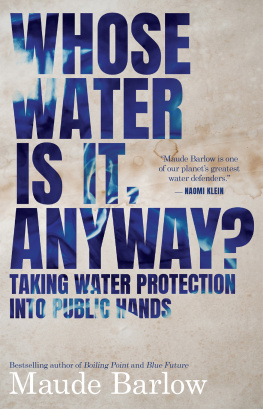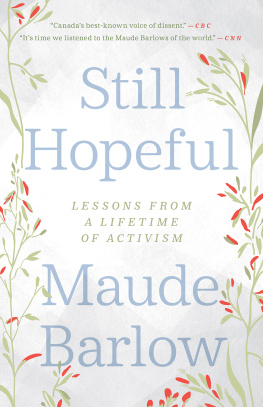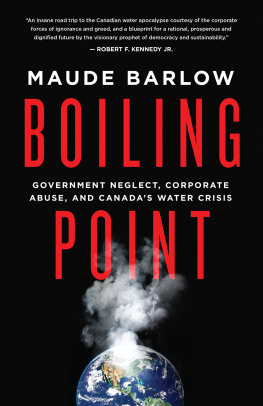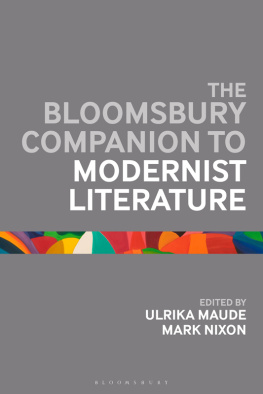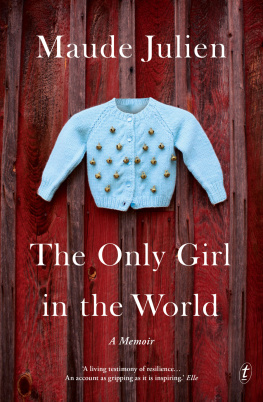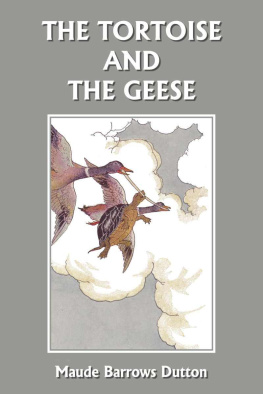Maude Barlow - Whose Water Is It, Anyway?
Here you can read online Maude Barlow - Whose Water Is It, Anyway? full text of the book (entire story) in english for free. Download pdf and epub, get meaning, cover and reviews about this ebook. year: 2019, publisher: ECW Press, genre: Politics. Description of the work, (preface) as well as reviews are available. Best literature library LitArk.com created for fans of good reading and offers a wide selection of genres:
Romance novel
Science fiction
Adventure
Detective
Science
History
Home and family
Prose
Art
Politics
Computer
Non-fiction
Religion
Business
Children
Humor
Choose a favorite category and find really read worthwhile books. Enjoy immersion in the world of imagination, feel the emotions of the characters or learn something new for yourself, make an fascinating discovery.
- Book:Whose Water Is It, Anyway?
- Author:
- Publisher:ECW Press
- Genre:
- Year:2019
- Rating:4 / 5
- Favourites:Add to favourites
- Your mark:
- 80
- 1
- 2
- 3
- 4
- 5
Whose Water Is It, Anyway?: summary, description and annotation
We offer to read an annotation, description, summary or preface (depends on what the author of the book "Whose Water Is It, Anyway?" wrote himself). If you haven't found the necessary information about the book — write in the comments, we will try to find it.
Whose Water Is It, Anyway? — read online for free the complete book (whole text) full work
Below is the text of the book, divided by pages. System saving the place of the last page read, allows you to conveniently read the book "Whose Water Is It, Anyway?" online for free, without having to search again every time where you left off. Put a bookmark, and you can go to the page where you finished reading at any time.
Font size:
Interval:
Bookmark:

Taking Water Protection Into Public Hands
MAUDE BARLOW

Praise for Whose Water Is It, Anyway?
Water inflates cells of all life forms, enables biological metabolism, transports materials throughout our bodies and around the world and provides an aqueous environment for our first nine months of life. Water is not a resource or economic opportunity but a sacred gift from Nature that is our responsibility to protect and use sparingly so that all life on Earth may flourish. This book is a blueprint for communities around the world to take back that responsibility and maintain water as a human right. David Suzuki
If water shortages and global unrest are on your mind and they should be read this book. Maude Barlow weaves todays stories of corporations mismanaging water and emboldened communities taking back this source of life to secure the human right to water. The examples of Blue Communities provide a pathway toward the water security that is desperately needed. Caryn Mandelbaum, Water Program Director, Leonardo Dicaprio Foundation
Maude Barlows commitment and determination for water justice throughout the world is a true inspiration. Clia Blauel, Deputy Mayor of Paris
Praise for Boiling Point
An insane road trip to the Canadian water apocalypse courtesy of the corporate forces of ignorance and greed, and a blueprint for a rational, prosperous and dignified future by the visionary prophet of democracy and sustainability. Robert F. Kennedy Jr.
Maude Barlow is one of our planets greatest water defenders. In this indispensable book, she brings her hard-won wisdom home, demonstrating that Canada is already in the midst of our own water crisis. With great warmth and precision, she also shows that by taking up the call for water justice so intimately connected to other struggles we can start to build the society we want. This book has all the facts, forceful analysis and moral clarity that Canadians will need to wake up and join this most urgent of struggles. Naomi Klein, author of This Changes Everything and The Shock Doctrine
Boiling Point is a rallying cry a critical call to action. Herizons Magazine
Barlow concludes on a hopeful note, providing reasonable solutions that show how a blue and just Canada is possible. She understands, however, that while most large corporations will do almost anything to increase profits, the primary responsibility for protecting citizens lies with governments at all levels. Barlow makes a convincing case that both our provincial and federal governments are failing this fundamental duty. Vancouver Sun
Barlow gives us more than a wakeup call. She gives us a call for action now! Canadian Association Of Labour Media
As interest grows in water as a commodity, Barlows book is timely and will resonate with environmentalists, those interested in international trade and anyone wondering just where Canada stands on the possible impending water crisis. Publishers Weekly
Barlows documentation of the very real threat to the global water supply is important reading as Canada faces key end-of-year deadlines regarding new pipeline development and meeting the targets of the Paris climate agreement. Quill & Quire
Boiling Point is a concise, informative guide to Canadas water crisis... Heres hoping many Canadians read Boiling Point and demand the necessary action. The Uniter
For Andrew, who is always there
All water has a perfect memory and is forever trying to get back to where it was.
Toni Morrison
This is a book about hope.
It is a story about everyday people defending the water resources of their communities and protecting the broader human right to water by ensuring it is now and forever a public trust, one that must not be allowed to fall under private, for-profit control.
It is a story about a grassroots campaign to address the water crisis the world is facing, which counters the argument that the best way to address this crisis is to commodify water and let the market decide who gets access to it and how.
But it is not a story about navet. It faces head-on some deeply disturbing realities we must acknowledge if we are to move forward.
In May 2016, the UN Environment Programme (UNEP) released the most comprehensive environmental study the United Nations has ever undertaken. Reporting on its studys findings, UNEP called water scarcity the scourge of the Earth and linked it directly to humanitys continued degradation of the lands and forests that replenish the worlds freshwater sources. In March 2018, UN Water released its annual World Water Development Report with a dire warning: if we do not change our ways, more than five billion people could suffer serious to severe water shortages in 30 years. Even today 3.6 billion people live in areas that are water scarce for at least a month per year. This could increase to as many as 5.7 billion people by 2050.
On top of these water shortages, there are many parts of the world where accessible, clean water is simply unavailable. An April 2017 report by the World Health Organization warned that at least two billion people worldwide drink water contaminated with feces every day, killing more than half a million people per year. WaterAid says that diarrhea caused by contaminated water and poor toilets kills a child under five every two minutes. The UN reports that 80% of wastewater from human activity is still discharged into waterways around the world without any pollution removal at all.
Some lay the blame for this at the feet of climate change. While it is true that human-generated greenhouse gas emissions have affected the water cycle and natural water storage systems, it is equally true that our active, collective abuse of water is another major cause of the worlds growing water crisis. Not only are we changing the climate around us as we heat up the world, we are polluting, depleting, damming, overextracting and diverting the planets water systems. We are changing landscapes and local hydrologic cycles, creating deserts in some places and catastrophic floods in others. Communities already living without clean water because of poverty, inequality and discrimination now find themselves in further danger as local water sources dry up or are claimed for profit-related purposes.
Two populations are particularly affected by the global water crisis. In many places, women have the primary responsibility to provide water for their families and they must walk hours every day in their search. Often they bring along their girl children, who then miss school. Girls may also refuse to attend school if there are no proper and safe sanitation conditions. The United Nations reports that in sub-Saharan Africa alone, women collectively spend 200 million hours each day, or 40 billion hours a year, collecting water. In a world where more people have access to cell phones than toilets, women and girls living without a toilet collectively spend 266 million hours each day finding a place to go to the bathroom.
Indigenous Peoples around the world are also at extra risk from the water crisis. Often living in smaller and more remote communities, they have less collective power to stand up to large extractive industrial operations in their territories that damage their local water supplies. Along with peasants, many of them landless, and small rural farmers, Indigenous Peoples are the most marginalized and are particularly vulnerable to industrial pollution of their water sources and to a lack of proper sanitation. These factors, along with extreme poverty, deny them access to clean drinking water. This is not confined to the global South. Twice as many Native Americans live in poverty as the rest of the American population, and 7.5% of their homes do not have basic sanitation or safe drinking water. First Nations communities in Canada are 90% more likely not to have running water or toilets in their homes than the Canadian population in general.
Font size:
Interval:
Bookmark:
Similar books «Whose Water Is It, Anyway?»
Look at similar books to Whose Water Is It, Anyway?. We have selected literature similar in name and meaning in the hope of providing readers with more options to find new, interesting, not yet read works.
Discussion, reviews of the book Whose Water Is It, Anyway? and just readers' own opinions. Leave your comments, write what you think about the work, its meaning or the main characters. Specify what exactly you liked and what you didn't like, and why you think so.

